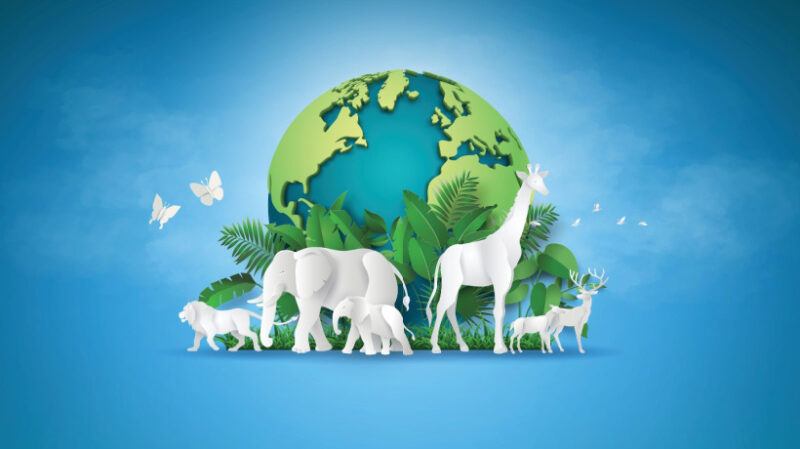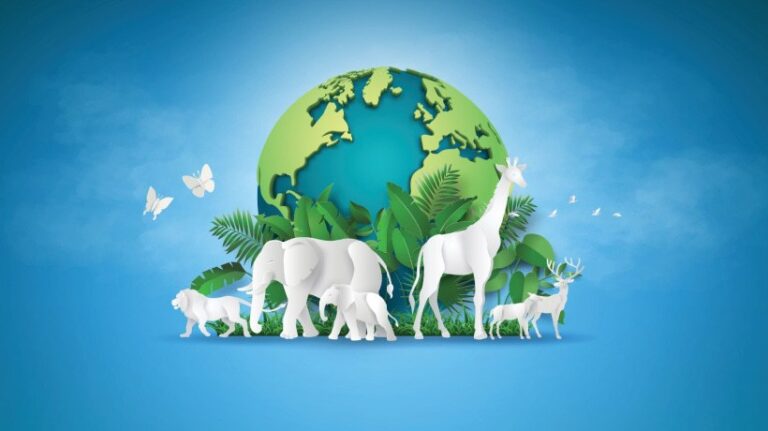
Creating a kind world for all animals
World Animal Day, celebrated annually on October 4th, reminds us how important important animals are truly. Throughout human history, they have been a source of wonder, comfort, support, and the backbone of ecosystems and economics. From the wildlife of the rainforest, the animals working on farms, and the beloved pets in our homes, this is a day to recognize their importance, but most critically, to raise awareness of the human challenges they face. Yes, their rights and standards of care have improved significantly over the years, but it is still essential to acknowledge and correct the dangers of various species of experience.
Therefore, World Animal Day defends the compassionate treatment and welfare of all animals. It’s an important day to celebrate itself, but this is our chance for all of us to create a better future for animals everywhere, regardless of the date on the calendar. This article shows some small ways businesses can respect animals after October 4th. This is a valuable opportunity for organisations from all sectors to expand their contributions and implement strategies to promote animal welfare throughout the year.
A short history of world animal day
The history of World Animal Day began in 1925 when German genealogist and author Heinrichzimmermann held his first event in Berlin, Germany, raising awareness of animal welfare. This first event took place on March 24th, with 5,000 incredible people taking part. Later in this year it moved to October 4th, coinciding with the day of the East Feast of St. Francis of Assisi, the patron saint of ecology and animals. This shift was officially approved by the International Congress of Ecology in 1931, establishing October 4th as the official day of World Animal Day. At the time, it was a way to shed light on the urgent need to protect endangered species. Today it is a global movement for animal rights protection and welfare, and it advocates against cruelty and exploitation.
Four Corporate Initiatives to Respect Animals Beyond Animal Days in the World
Educational Events and Awareness Workshops
Many people are unaware of the issues of animal welfare and the impact that businesses can have by participating in activities that raise awareness. Habitat destruction and loss of biodiversity, conflicts in human life, factory agriculture, and more are all common topics that many people don’t know about. Therefore, these events are important opportunities to share both worrying and fascinating facts. But most importantly, they demonstrate and promote measures that businesses and individuals can implement to care for and protect animals both inside and outside the community. Finally, these educational activities show how employees can make more informed and considerate choices in their lives. And they pulled away companies that really care about important causes.
Visiting farms and shelters
The reality is very different from expectations. Visit a rescue shelter, NGO, or farm where animals live or work can shed light on the lives and challenges of species. A quick walk through the rescue shelter explains the reality of their living conditions, introduces the importance of responsible ownership and adoption practices, and emphasizes the need to support animal welfare in every way we can. It’s more effective than any presentation.
Furthermore, stops on farms where ethically cared and rehabilitated animals live will see first-hand the natural behavior of animals and the impact that human choices have on their well-being. For example, last year, the e-learning industry visited ESPI, a rehabilitation sanctuary for abused and abandoned horses.
Finally, you also have the option to look at the other side of the coin by visiting a place where you practice something called “industrial animal agriculture.” When you witness it, you will find a very disturbing and unpleasant truth. However, this is a prime example of why the values promoted by World Animal Day should guide us throughout the year.
Adoption Day and Funding Events
These are some of the most important initiatives a company can organize. Fundraising events and adoption drives will extend support to local animal groups and rescue shelters. Obviously, adoption events help animals find a caring home. But did you know they would also counter overcrowding at shelters and their disastrous consequences? Reducing overcrowding means stressful accommodation for animals, better care and resource allocation, and therefore more rescue from abuse and neglect. Additionally, fundraising events could go a long way to run shelters and animal rescue groups. And even a small amount of sourcing helps them continue their work.
When it comes to logistics, your company can go through two ways to do these events. You can choose a local animal shelter to help organize adoption events or fundraisers by leveraging the diverse skill sets and expertise of your employees. Alternatively, you and your colleagues can set up a fundraising campaign and donate proceeds to local animal welfare organizations, such as bake sales or concerts. It’s a small way to make a big impact.
Cleaning natural habitats
Human intervention is the main cause of pollution, ultimately destroying the animal’s natural habitat, putting their well-being, food sources, and ecosystems at risk. Cleaning your natural habitat involves your company removing trash and trash to protect local wildlife and their homes. These efforts range from cleansing small parks and beaches to complete ecological restoration projects with community involvement, depending on location and resource. It’s a great idea to improve your initiative from a corporate event to an involved project that creates a tangible, positive impact on the community and animal welfare organizations.
Conclusion
Although not exhaustive, the above list provides several initiatives that companies can implement to promote animal welfare. We recommend you come up with your own fresh ideas to help animals in your area.
Ultimately, World Animal Day is celebrated to highlight all the wonderful creatures we share the planet. Think of animals that live on farms, animals that live in rainforests and live in captivity, animals that swim in the ocean, and those that expel you from using your own pillow every night. They all deserve kindness, so let’s do our best to protect and defend their rights. Ultimately, it is our collective responsibility to create a peaceful world for them.


